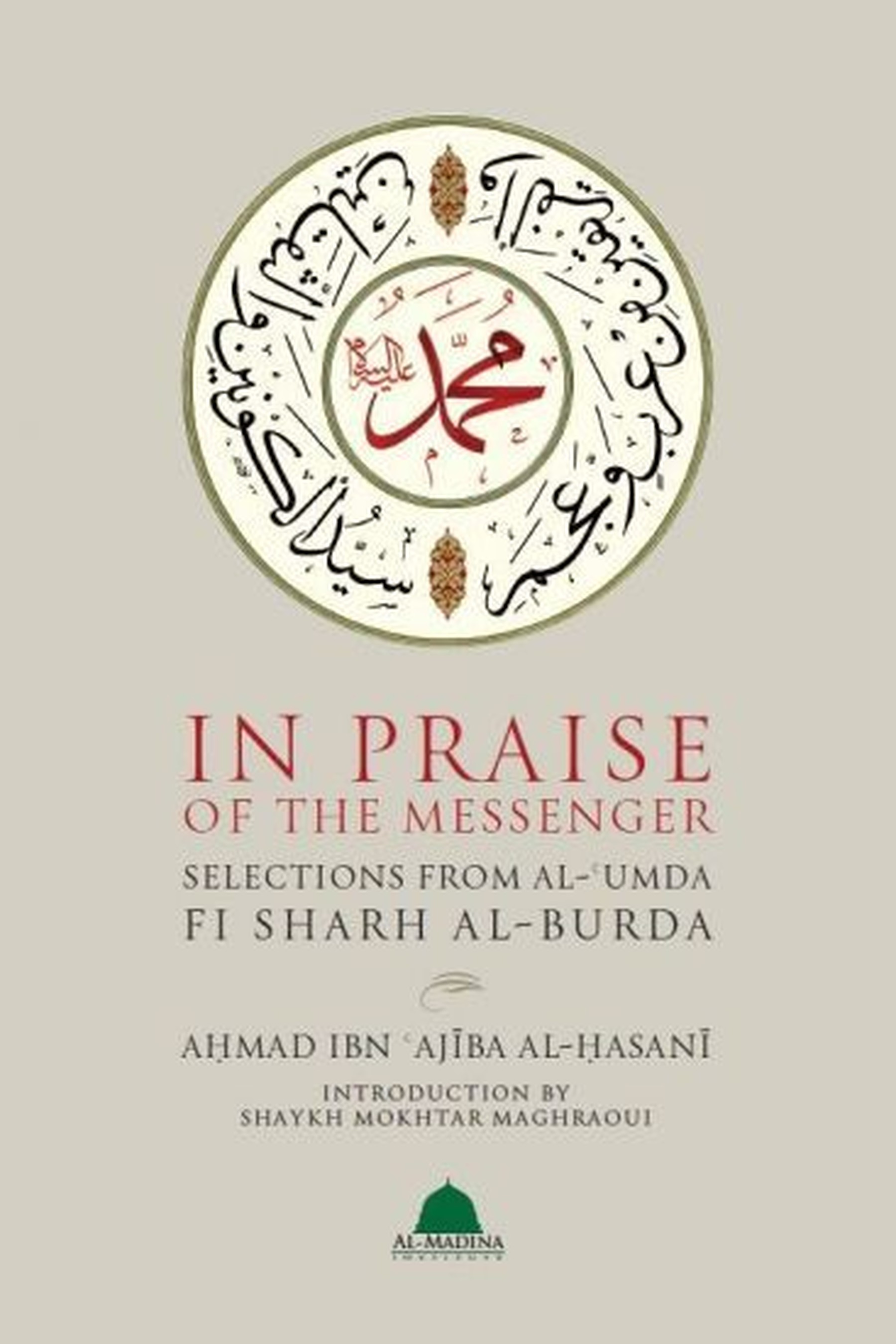In praise of the messenger selections from Al-‘Umda fi Sharh Al-Burda
About The Book
Sung and read throughout the Muslim world, Imam Al-Busiri's poem Al-Burdah has invigorated and inspired countless generations with the love of the Messenger of God. In this edition, spiritual commentaries by Ibn 'Ajiba on the Burdah, now rendered into a new English translation, discuss the key poetic verses from its third chapter, which comprises its most popular verses:
"It is not the aroma of musk that you find;
It is the fine praise that is left behind."
‘Indeed, the virtue and perfect nobility of Allah's Messenger s has no limit that may be reached, that it might be fully expressed on the tongue, for the grandeur and immensity of his essence and rank that Allah bestowed him with are limitless and endless, that a person might express it and make it clear. If all of the rhetoricians and eloquent speakers came together and endeavored to use their facile tongues to describe the Prophet's virtues and qualities of perfection, their descriptions would only amount to a drop of water from an ocean; nay, every speaker is incapable of fully expressing his perfections.’ – Ibn ‘Ajiba
This edition presents Ibn 'Ajiba’s (1747-1809) commentaries on key poetic verses from the third chapter of Imam Al-Busiri’s (1211–1294) celebrated poem Al-Burdah. The poem, whose actual title is al-Kawākib ad-Durrīya fī Madḥ Khayr al-Barīya ("Celestial Lights in Praise of the Best of Creation"), is a seminal piece of literature sung and read throughout the Muslim world. This poem decorated the Mosque and tomb of the Prophet (salla Allahu ‘alayhi wa sallam) in Medina for centuries, until recent times.
Al-Burda is divided into 10 chapters and 160 verses. Chapter three of Al-Burda, entitled “On the Praise of the Prophet,” comprises the most popular verses. Praising the Prophet in verse was initiated by the illustrious Prophetic companion Hassan ibn Thabit. We have omitted the author’s linguistic analysis, so as not to detract from the spiritual tone of the commentaries.
